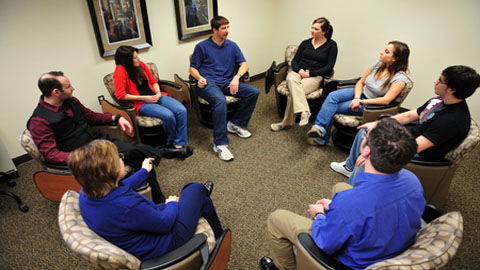Mental health and safety aren’t regularly discussed in our society. Our culture as a whole has stigmatized mental illness, as if it were an infectious disease. In a recent report, the National Alliance on Mental Illness (NAMI) notes that the US mental health system is far from sufficient. Health services and laws vary across states, further deterring individuals from seeking help. However, in light of recent mass shootings, discussion on mental health in America is becoming more prevalent. But why must it take a tragedy to discuss something so important? The Fil-Am community, which has more easily assimilated into American society in comparison to other Asian communities, rejects the help-seeking mentality. In a study, E.J.R. David says that “cultural mistrust” plays a major role among the Fil-Am community. Mistreatment and oppression throughout Pilipino and Fil-Am history has certainly influenced this mistrust. However, one of the findings was that younger generations are more inclined to seek psychological help, as they don’t have the same concerns as first generation Pilipinos. Those more assimilated and familiar with American culture were more willing to seek help. Furthermore, the study found that those with a higher economic status have more opportunities to seek help.
Like in other Asian communities, loss of face and shame are feared among Pilipinos. As a young Fil-Am, I unknowingly lived with this mentality. I used to be afraid to open up and ask for help when I needed it. Sharing my most difficult struggles wasn't originally part of my personality, nor my identity. For me, admitting that I needed help required a lot of courage and a loving support network. It wasn't until my second year of college that I realized seeking help was even an option. After a referral from one of my advisors, I visited the William & Mary Counseling Center. I was afraid; I felt like I was admitting defeat, and that I wasn't strong enough to face my problems. I eventually realized that I was wrong. I ended up returning to the Counseling Center throughout the rest of my time at William & Mary. I attended meditation sessions, individual therapy, and, in my opinion the most helpful, group therapy. Being able to speak my mind, without fear of judgment or having to follow through with explicit advice, was reinvigorating. I knew I was being heard, and in turn, got as much out of it as I put into it.
After such a positive experience at the Counseling Center, I was proud of my newly-acquired love for seeking help. I found myself encouraging others to also take time out of their day to explore new outlets, be it exercise, lost hobbies, or seeing a therapist. I even got involved with student government and organizations on campus in order to spread mental health awareness.
I only hope that the younger generations can embrace this mentality, and encourage their peers and the larger Fil-Am community to do the same. We can only benefit from confronting Fil-Am mental health. Regardless of cultural expectations, it is important to be selfish when it comes to your personal well-being. Speaking from personal experience, I assure you: there is absolutely nothing wrong with asking for help.
Photo credit: Counselor.org

